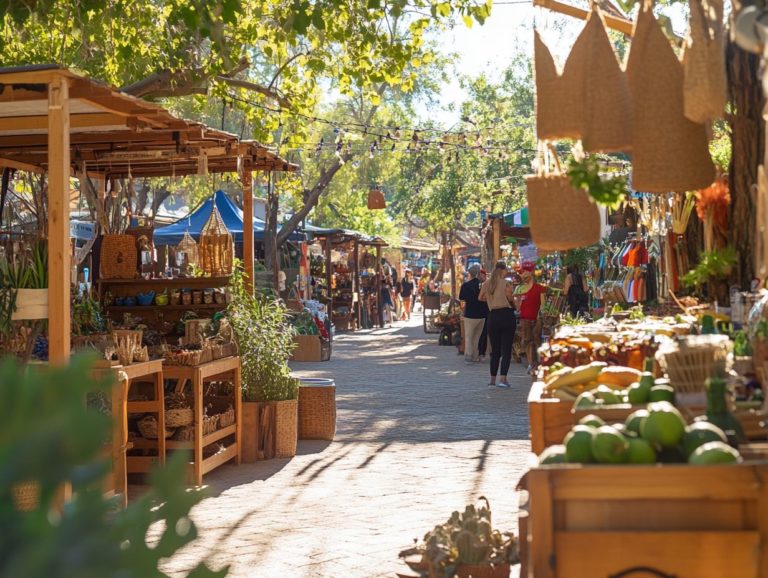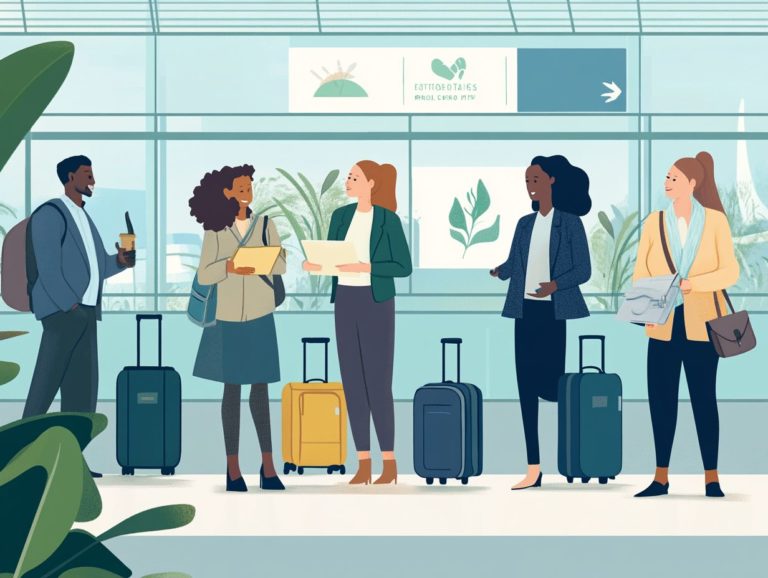Cultural Sensitivity: Traveling with Respect
Traveling offers a gateway to new experiences, but it also demands a thoughtful approach to the cultures you encounter.
Cultural sensitivity is essential for travelers. It helps you explore diverse societies while honoring local customs and traditions. This article delves into what cultural sensitivity means, its significance while traveling, and the advantages of embracing diverse perspectives. You’ll also discover the importance of being a culturally sensitive traveler.
You ll find practical tips for navigating cultural norms and gracefully handling misunderstandings. By cultivating cultural awareness, you can elevate your travel experiences into meaningful connections.
Contents
- Key Takeaways:
- Understanding Cultural Sensitivity
- Why Cultural Sensitivity is Important when Traveling
- Tips for Being Culturally Sensitive while Traveling
- Dealing with Cultural Differences and Challenges
- Frequently Asked Questions
- What is cultural sensitivity and why is it important when traveling?
- How can I prepare myself to be culturally sensitive while traveling?
- What are some common cultural customs and practices to know while traveling?
- How can I show respect for local culture while traveling?
- What should I do if I unintentionally offend someone while traveling?
- What are the benefits of being culturally sensitive while traveling?
Key Takeaways:
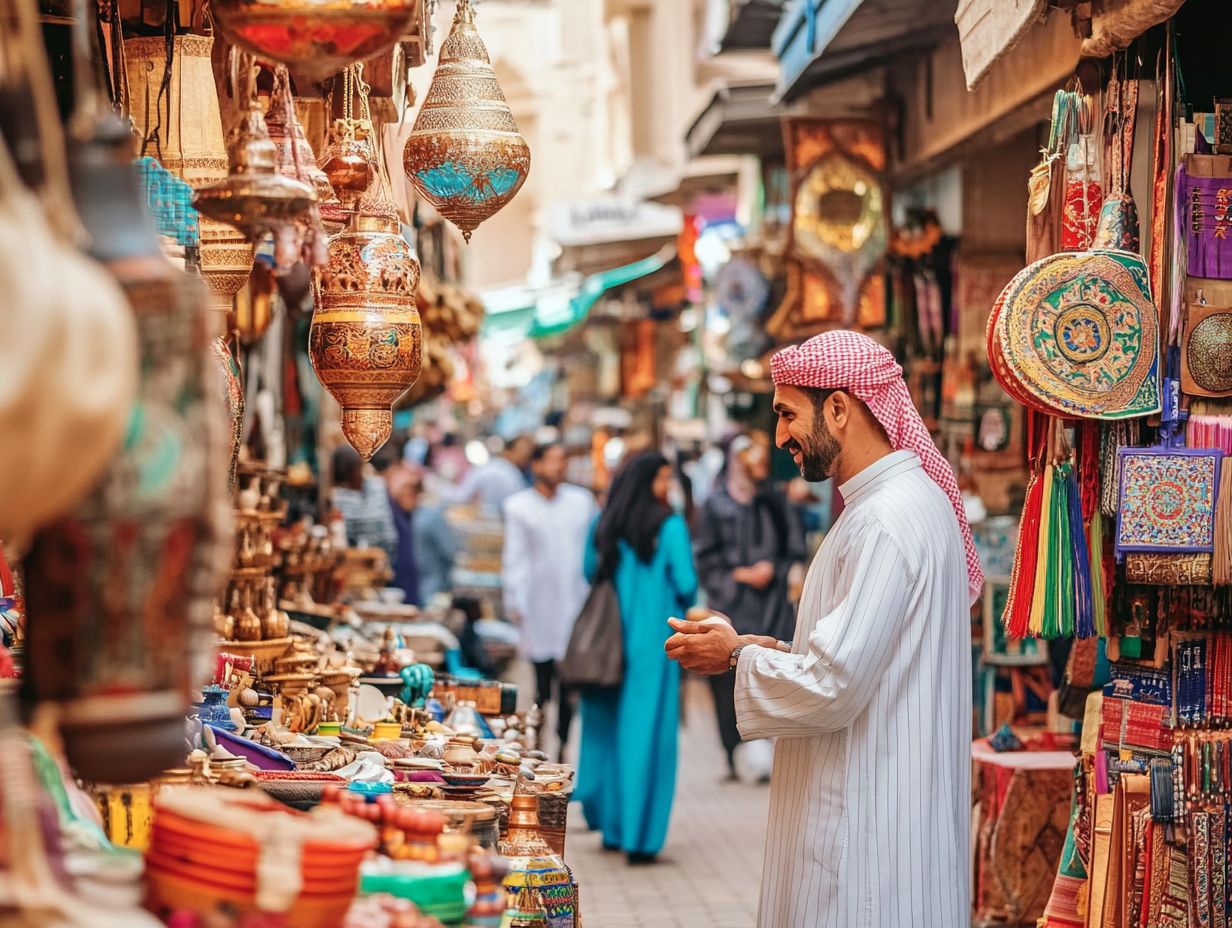
- Cultural sensitivity is crucial when traveling to avoid offending locals and damaging relationships.
- Benefits of being culturally sensitive include gaining a deeper understanding of different cultures and making meaningful connections with locals.
- To improve cultural sensitivity while traveling, research cultural norms, respect local traditions, and communicate effectively with locals.
Understanding Cultural Sensitivity
Understanding cultural sensitivity is essential for you as a culturally aware traveler. It requires a keen awareness of cultural differences, social norms, and ethical practices, all of which can significantly enhance your travel experience.
By embracing cultural sensitivity, you not only forge meaningful connections but also make a positive contribution to local communities. This awareness deepens your appreciation for cultural heritage and promotes sustainable tourism, helping you travel responsibly while making a positive impact on local economies.
Viewing your journey through this lens helps you engage with locals respectfully, ensuring that your experiences are both memorable and enriching. This respectful behavior fosters community engagement and cultural understanding.
Defining Cultural Sensitivity
Cultural sensitivity is all about being aware of and understanding the rich tapestry of cultural differences, customs, and values that shape human interactions.
Recognizing these nuances is essential, especially when you venture into new regions where traditions and social norms can vary dramatically from your own. This understanding allows you to engage respectfully and enhances your interactions with locals, enabling you to connect more meaningfully within different communities.
Embracing local customs not only enriches your travel experience but also fosters cultural understanding, creating a pathway for genuine connections.
When you demonstrate sensitivity toward the values and practices of others, you contribute to a more harmonious exchange that honors the unique perspectives of each culture, ultimately creating goodwill and mutual respect.
Why Cultural Sensitivity is Important when Traveling
Cultural sensitivity is very important in elevating your travel experiences and leaving a beneficial mark on the communities you visit. It gives you the power to engage authentically with local traditions, customs, and social norms, creating a respectful atmosphere for you and your hosts.
By grasping and following cultural taboos and etiquette, you not only enhance your own journey but also make a significant, lasting impact on the places you explore. Exploring art and culture responsibly while traveling allows you to be aware of diverse societies and their values, enabling you to actively contribute to community engagement and effectively support local economies.
Benefits of Being Culturally Sensitive
Being culturally sensitive brings a wealth of benefits that can significantly elevate your travel experiences. It allows you to forge meaningful connections with locals while promoting a broader global awareness.
This approach not only enriches your individual journey but also nurtures a deeper understanding of different cultures, expanding your perspectives. By immersing yourself in the customs and traditions of the places you visit, you engage in authentic and memorable interactions that leave a lasting impression.
Practicing cultural sensitivity also enhances community engagement, enabling you to give back to local economies while ensuring that your presence is both respectful and beneficial. For insights on how to respect cultural heritage while traveling, consider how these experiences contribute to a more interconnected world, where mutual respect fosters understanding and cooperation among diverse communities.
Consequences of Cultural Insensitivity
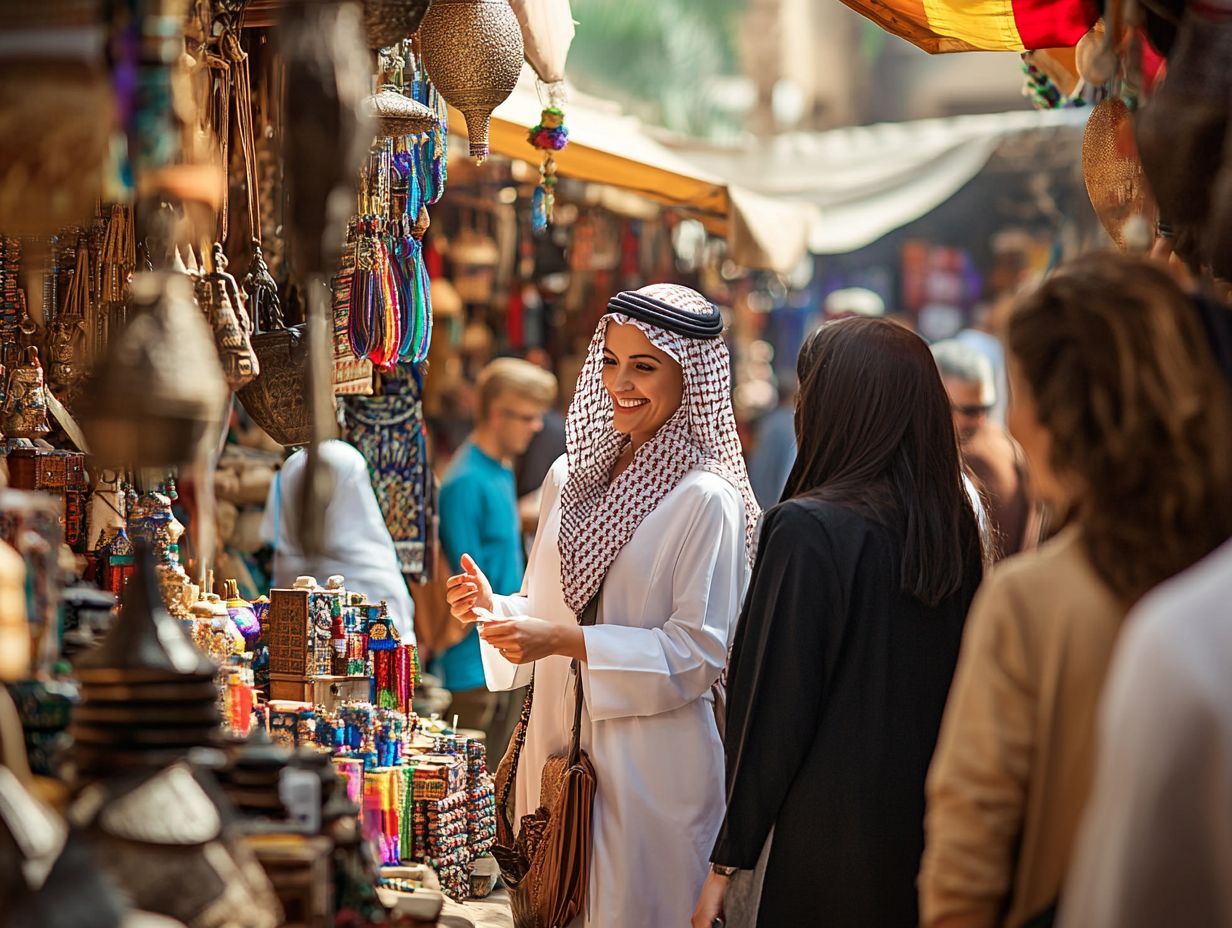
Cultural insensitivity can lead to misunderstandings, offense, and damage relationships between you as a traveler and the host communities. This behavior significantly alters your travel experience.
When you overlook local customs or fail to acknowledge things that are considered disrespectful, you risk feeling unwelcome. You also contribute to the perpetuation of stereotypes and negative perceptions. This lack of awareness can arise from seemingly harmless actions that unintentionally offend locals, creating barriers instead of bridges.
Cultural insensitivity detracts from the rich learning opportunities that travel offers. It hinders the genuine connections you can forge. To truly appreciate diverse cultures, it’s essential for you to prioritize travel etiquette, showing respect and mindfulness toward the traditions and values of the communities you visit.
By doing so, you’ll foster more harmonious interactions and enrich your overall travel experience.
Tips for Being Culturally Sensitive while Traveling
To be a culturally sensitive traveler, you must embrace certain practices that deepen your understanding and respect for local cultures. This practice makes your journey much more enjoyable!
Researching Cultural Norms and Customs
Researching cultural norms and customs before your trip is an essential step for any traveler who values cultural sensitivity. By dedicating time to this important preparation, you can engage with locals in a more meaningful way.
This fosters mutual respect and understanding. Travel advice websites often emphasize the significance of these insights, providing invaluable resources that shed light on the intricacies of various societies. For example, learning how to support Indigenous cultures while traveling can enrich your journey. From greeting etiquette to dining customs, gaining cultural knowledge gives you the power to sidestep social blunders and enhances your overall experience.
This proactive approach enriches your journey and leaves a positive impact on the communities you visit. It creates a bridge between diverse cultures that promotes goodwill and appreciation. Engaging with locals by asking questions about their traditions enhances this experience.
Respecting Local Traditions and Beliefs
Respecting local traditions and beliefs is crucial for nurturing positive interactions and ensuring a culturally sensitive travel experience.
By understanding and adhering to specific dress codes and practices, you can demonstrate your commitment to honoring these traditional values. Whether it s donning modest clothing in religious sites or participating respectfully in local ceremonies, every small gesture fosters a deeper connection with the culture.
Learning about the customs surrounding greetings, dining, and photography is equally beneficial. This reflects your genuine interest and appreciation. Embracing these travel etiquette: respecting local customs cultivates a spirit of goodwill between you and the local communities you encounter.
Communicating Effectively with Locals
Effective communication with locals can significantly elevate your travel experience. It leads to meaningful connections that linger long after your journey ends. This includes using essential phrases and demonstrating awareness of cultural differences.
By making an effort to learn a few basic phrases in the local language, you demonstrate respect and openness. This often creates a more welcoming atmosphere. Simple greetings, expressions of gratitude, and polite inquiries can dismantle barriers, paving the way for authentic interactions.
When you ask questions, you not only showcase your interest but also encourage locals to share their culture. They might reveal recommendations and hidden gems that could remain undiscovered in guidebooks. This active engagement enriches your journey, making each encounter memorable and deepening your understanding of the destination.
Dealing with Cultural Differences and Challenges
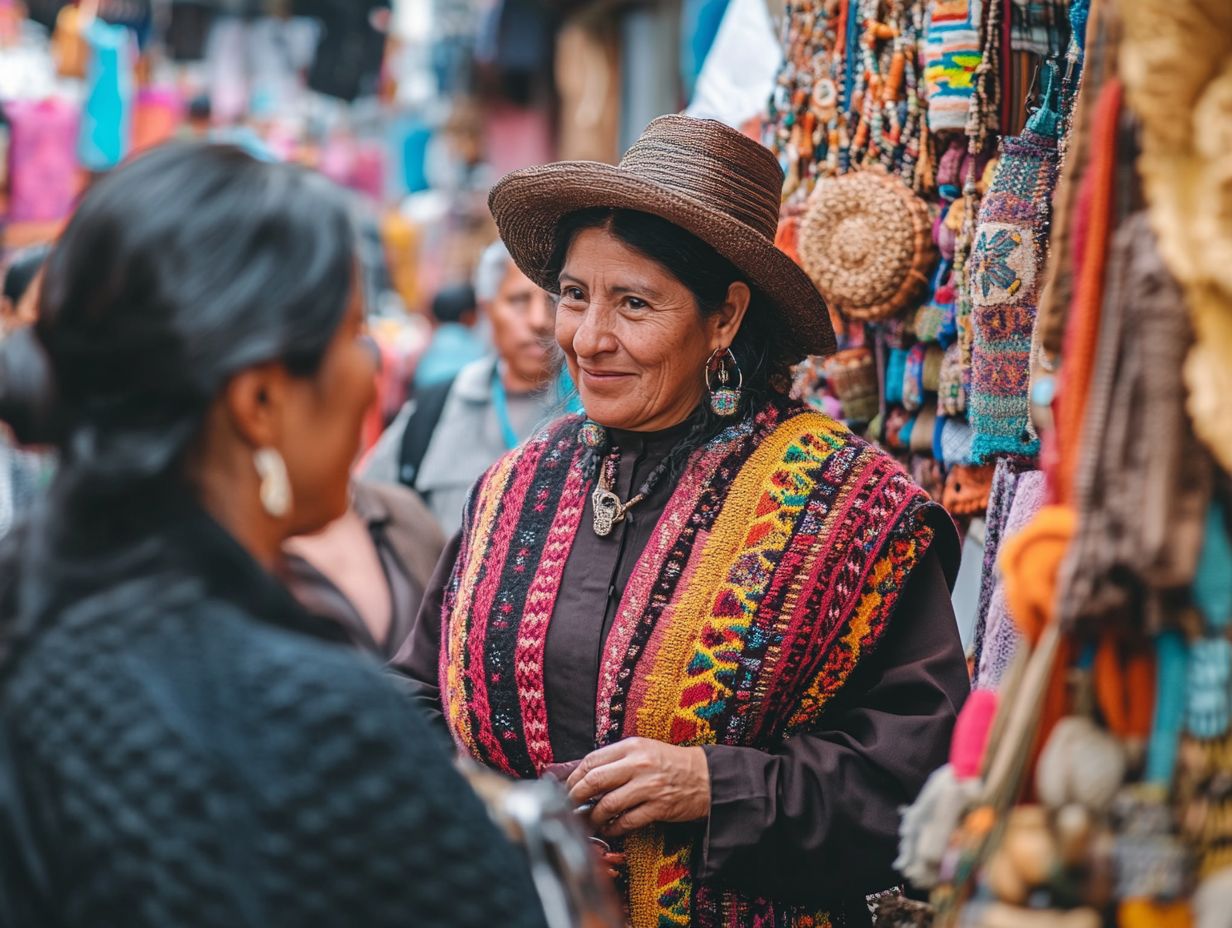
Navigating cultural differences and challenges is an unavoidable aspect of travel. Yet with the right mindset, it can transform into enriching experiences that foster a deeper understanding of the world around you.
Start planning your culturally sensitive trip today!
Handling Misunderstandings and Conflict
Navigating misunderstandings and conflicts with cultural sensitivity is essential for maintaining respectful relationships during your travels.
As you explore unfamiliar environments, you’ll likely encounter cultural differences that can present unexpected challenges. Understanding and respecting different cultures will empower you to manage these situations with greater ease.
Approach conflicts with an open mind. Recognize that cultural norms and communication styles shape interactions.
For example, practicing active listening and asking clarifying questions can help you avoid assumptions that might escalate tensions. Demonstrating respect through thoughtful gestures like using polite language and recognizing local customs can create goodwill, transforming potential disputes into valuable opportunities for mutual understanding and deeper connections with people from varied backgrounds.
Adapting to Different Cultural Practices
Adapting to various cultural practices and travel etiquette is crucial for you as a traveler seeking to engage meaningfully with local communities.
By embracing travel mindfulness, you can cultivate a profound appreciation for the traditions, customs, and social norms that define each destination. Understanding local etiquette whether it s a simple greeting or a more intricate dining ritual can significantly enhance your interactions.
For instance, learning a few basic phrases in the local language not only shows respect but also signals your eagerness to connect.
Immersing yourself in cultural activities, from vibrant festivals to traditional crafts, fosters authentic relationships with residents. These experiences not only enrich your journey but also promote a deeper understanding of the values and beliefs that shape different societies.
Frequently Asked Questions
What is cultural sensitivity and why is it important when traveling?
Cultural sensitivity is understanding and respecting differences between cultures. Being culturally sensitive makes your travels more respectful and enjoyable! It helps you avoid unintentional offense towards the local culture.
How can I prepare myself to be culturally sensitive while traveling?
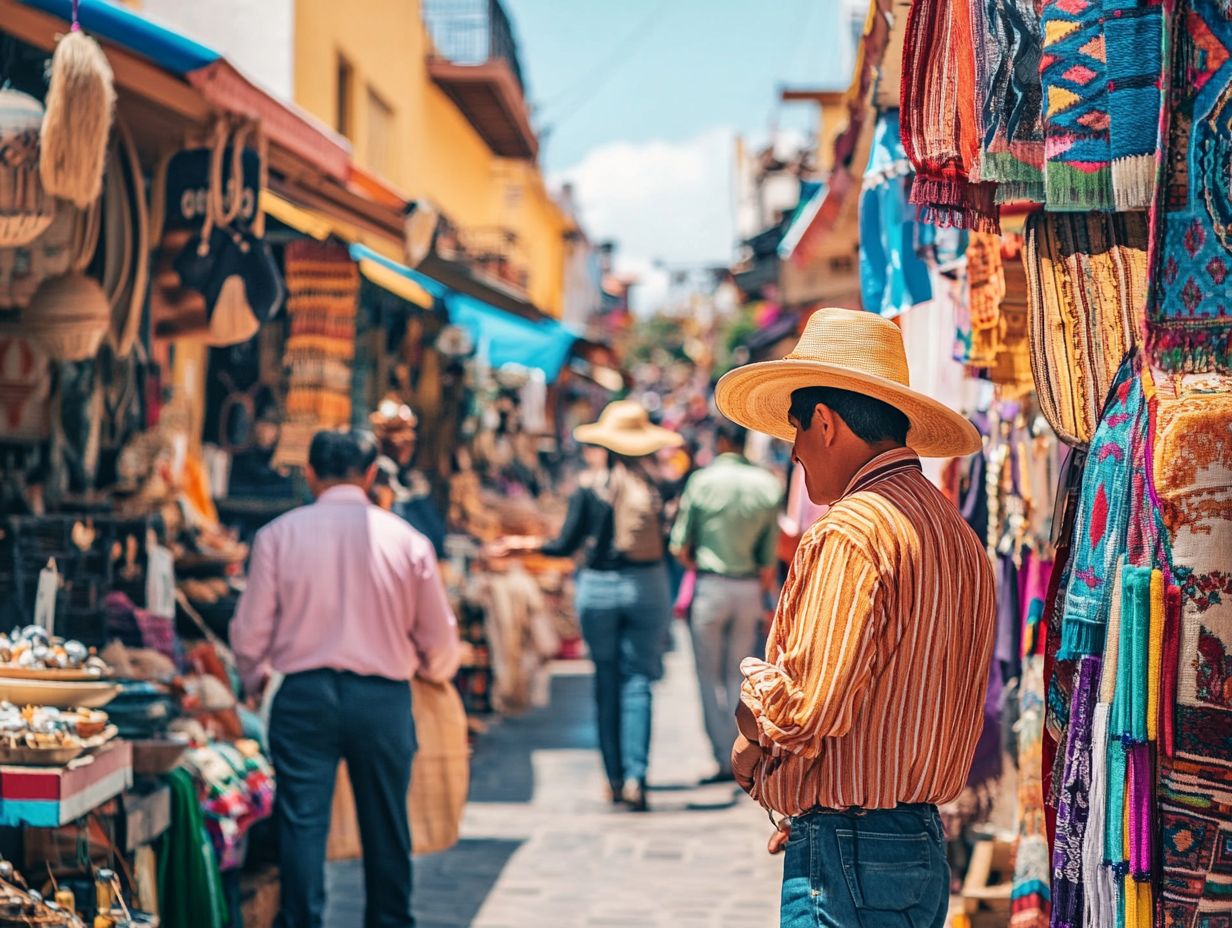
One way to prepare yourself is to do research on the destination’s culture, customs, and travel tips. Being open-minded and respectful is crucial for being more culturally sensitive while traveling.
What are some common cultural customs and practices to know while traveling?
When traveling, be aware of dress codes, greetings, gestures, and local taboos. Understanding the local religion and traditions, including table manners, is also important.
How can I show respect for local culture while traveling?
Learn a few essential phrases in the local language to engage with locals. Be mindful of your actions to avoid being offensive and show genuine interest in local traditions.
What should I do if I unintentionally offend someone while traveling?
If you offend someone, sincerely apologize and clarify that it was unintentional. Educate yourself on local customs to prevent future misunderstandings.
What are the benefits of being culturally sensitive while traveling?
Being culturally sensitive enhances your travel experience. It fosters relationships and promotes a harmonious understanding between different cultures, all while supporting sustainable tourism.




